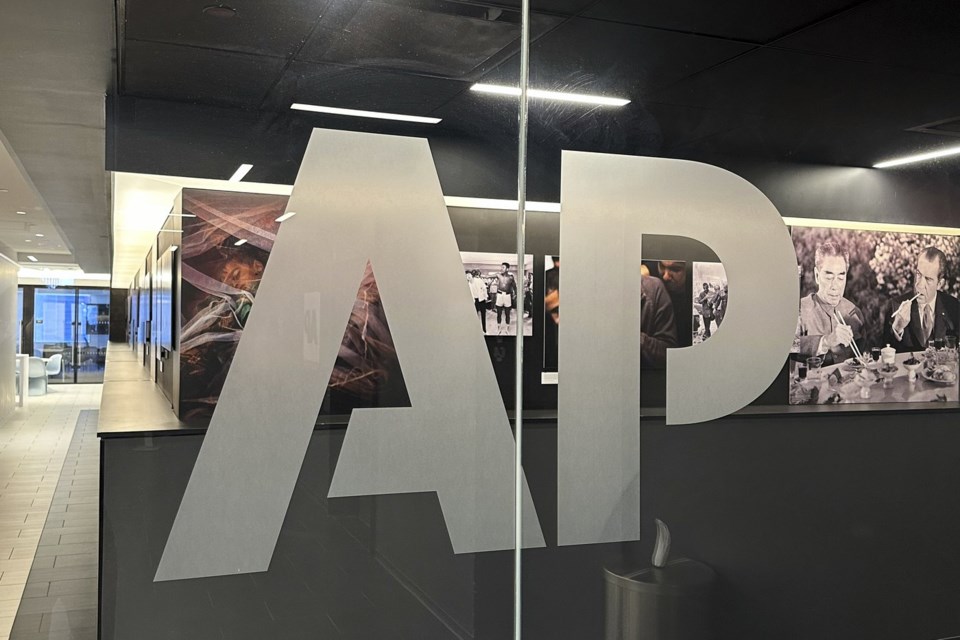Despite a court order, a reporter and photographer from The Associated Press were barred from an Oval Office news conference on Monday with President Donald Trump and his counterpart from El Salvador, Nayib Bukele.
Last week's federal court decision forbidding the Trump administration from punishing the AP for refusing to rename the Gulf of Mexico was to take effect Monday. The administration is appealing the decision and arguing with the news outlet over whether it needs to change anything until those appeals are exhausted.
The U.S. Court of Appeals for the D.C. circuit set a Thursday hearing on Trump's request that any changes be delayed while case is reviewed. The AP is fighting for more access as soon as possible.
Later Monday, two AP photographers were admitted to an event honoring Ohio State's championship football team on the more spacious South Lawn. A text reporter was turned away.
Since mid-February, AP reporters and photographers have been blocked from attending events in the Oval Office, where President Donald Trump frequently addresses journalists, and on Air Force One. The AP has seen sporadic access elsewhere, and regularly covers White House press secretary Karoline Leavitt’s briefings. Leavitt is one of three administration officials named in the AP's lawsuit.
The dispute stems from AP’s decision not to follow the president’s executive order to rename the Gulf of Mexico, although AP style does cite Trump’s wish that it be called the Gulf of America. The AP argued – and U.S. District Judge Trevor N. McFadden agreed last week – that the government cannot punish the news organization for exercising its right to free speech.
McFadden on Friday had rejected Trump’s request for more delay in implementing the ruling; now the president is asking an appeals court for the same thing.
“We expect the White House to restore AP's participation in the (White House press) pool as of today, as provided in the injunction order,” AP spokeswoman Lauren Easton said Monday.
The extent of AP's future access remains uncertain, even with the court decision.
Until being blocked by Trump, AP has traditionally always had a reporter and photographer among the small group of journalists invited into the Oval Office. McFadden did not order that to be restored, only that no news organization should be shut out because the president objects to its news decisions — under a principle called “viewpoint discrimination.”
“No other news organization in the United States receives the level of guaranteed access previously bestowed upon the AP,” the administration argued in court papers over the weekend. “The AP may have grown accustomed to its favored status, but the Constitution does not require that such status endure in perpetuity.”
___
David Bauder writes about media for the AP. Follow him at http://x.com/dbauder and https://bsky.app/profile/dbauder.bsky.social
David Bauder, The Associated Press



